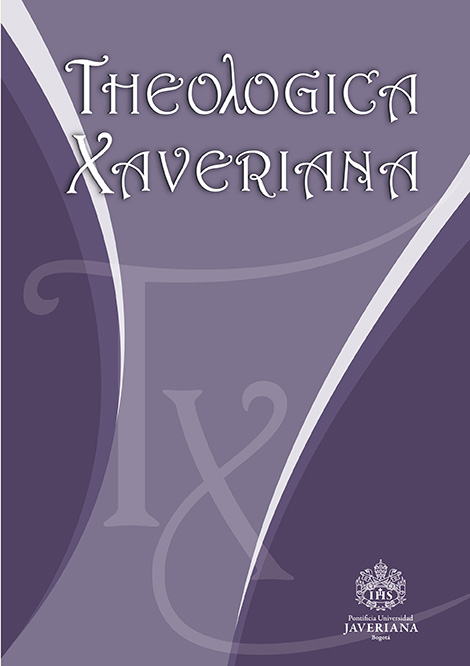Resumen
Hace treinta años que siete jesuitas fueron asesinados en El Salvador. Su líder, Ignacio Ellacuría (1930-1989), fue un sacerdote de marcada y profunda espiritualidad. Al tiempo dio origen a una tradición de pensamiento filosófico-teológico. Al seguir una tendencia que también se observa en otras disciplinas, esta escuela ha venido a apreciar cada vez más cómo la dimensión de la espiritualidad es importante para su trabajo, sobre todo, en lo que respecta al tratamiento del tema de la trascendencia. En diciembre de 2019, un grupo de académicos se reunió en la Universidad Loyola Andalucía, en el marco del simposio “Espiritualidad, saberes y universidad”, y exploró esta cuestión del papel de la espiritualidad en el pensamiento de Ellacuría.
El artículo que aquí se presenta incluye fragmentos que presenté en aquella conferencia. Se limitan a comentar secciones presentes en las fuentes escritas de Ellacuría, tal como fueron publicadas en la colección de ensayos Escritos teológicos. Aquí se estudia la explicación pastoral que Ellacuría hace del término “espiritualidad”, el campo semántico empleado para referirse a “lo espiritual”, y el protagonismo en el pensamiento de Ellacuría de las nociones de historia realizada y espiritualidad liberadora. El artículo relaciona la espiritualidad de Ellacuría con los urban studies, dado que las ciudades se han convertido en un contexto teológico. Señala que, aunque la vida en la ciudad proporcionó gran parte del contexto para la reflexión de Ellacuría no cuenta con las características espirituales de vivir en una ciudad explícitamente. No cae en cuenta de cómo la teología y la espiritualidad que propone pueden comprometerse con y beneficiarse del impacto distintivo de la realidad urbana y de sus posibilidades.
Esta contribución intenta explicar dicha deficiencia, para que el pensamiento de Ellacuría sea puesto en relación con la vida urbana y sea haga más concreto. Para ello encuentra aspectos del pensamiento de Ellacuría revisables: el uso de algunos pasajes bíblicos, el uso de ideas agustinianas sobre la ciudad; y su comprensión teológica y formal del “carisma”. Por último, este texto invita a los investigadores a reconocer que la obra de Ellacuría puede constituir una base, aunque limitada, para el desarrollo posterior de diversos temas.
Arango Alzate, Oscar; y Orlando Solano Pinzón. “La espiritualidad en Ignacio Ellacuría”. Theologica Xaveriana 66/181 (2016): 123-145.
Ashley, J. Matthew. “Ignacio Ellacuria and the Spiritual Exercises of Ignatius Loyola”. Theological Studies 61 (2000): 16-39.
Cacciari, Massimo. La ciudad. Barcelona: Gustavo Gili, 2010.
Cepal. “Definición de población urbana y rural utilizadas en los censos de los países latinoamericanos”. Cepal, https://www.cepal.org/sites/default/files/def_urbana_rural.pdf (consultado el 28 de enero de 2020).
Comblin, Joseph. Théologie de la ville. Paris: Éditions Universitaires, 1968.
Ellacuría, Ignacio. Conversión de la Iglesia al Reino de Dios. Santander: Sal Terrae, 1984.
______. Escritos teológicos. Vol. 1. San Salvador: UCA Editores, 2000.
______. Escritos teológicos. Vol. 2. San Salvador: UCA Editores, 2000.
______. Escritos teológicos. Vol. 3. UCA Editores, 2001.
______. Escritos teológicos. Vol. 4. San Salvador: UCA Editores, 2002.
______. “Espiritualidad”. En Conceptos fundamentales de pastoral, editado por Casiano Floristán y Juan José Tamayo Acosta, 301-309. Madrid: Cristiandad, 1983.
______. “Hacia una fundamentación filosófica del método teológico latinoamericano”. Estudios Centroamericanos 322 (1975): 409-425.
______. “Liberación, misión y carisma de la Iglesia latinoamericana”. Estudios Centroamericanos 268 (1971): 61-80.
Floristán, Casiano; y Juan José Tamayo-Acosta (eds.). Conceptos fundamentales de pastoral. Madrid: Ediciones Cristiandad, 1983.
Santamaría Rodríguez, Juan Esteban. “Teología de la realidad histórica. Apropiación epistémica desde Ignacio Ellacuría”. Theologica Xaveriana 68/186 (2018): 164-192.
Pittl, Sebastián. “La relevancia de una mística universitaria. Reflexiones acerca del presente y futuro de la universidad a partir de Klaus Heinrich e Ignacio Ellacuría”. Revista de fomento social 72/1 (2017): 85-97.
Segunda Conferencia General del Episcopado Latinoamericano. “Documentos finales de Medellín”. Celam, https://www.celam.org/documentos/Documento_Conclusivo_Medellin.pdf (consultado el 19 de diciembre de 2019).
Universidad de Deusto. “Religiones, espiritualidad y sociedad multicultural”. Deusto, https://www.deusto.es/cs/Satellite/deustoresearch/es/
inicio/centros-equipos-e-investigadores/equipos-de-investigacion/religiones-espiritualidad-y-sociedad-multicultural-1/equipoinvestiga?_
ga=2.262763854.313347189.1579370073-1903017143.1579370073&_gac=1.41683734.1579370073. EAIaIQobChMI8tS4_NuN5wIV2JrVCh1JEgJoEAAYASAAEgLM7PD_BwE (consultado el 16 de marzo de 2020).

Esta obra está bajo una licencia internacional Creative Commons Atribución 4.0.


